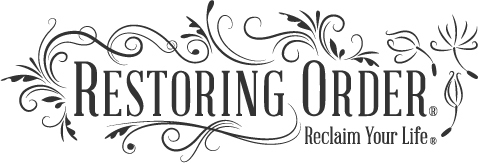
Gurus and motivational leaders have us convinced that self-improvement is a good thing. That we should all undertake the necessary and life-changing steps to improve our inner and outer selves so that we may thrive/grow/succeed.
I, however, just don’t buy it.
First of all, the central beliefs of self-improvement cultivate dishonor, while self-management operates in honor.
Self improvement assumes that you need improvement. It begins with the idea that we are inherently flawed and we must work to correct that state. This is a premise of dishonor.
I start from a different belief system. I believe that we are all unique, awesome, powerful creations who have been set in motion to bring our gifts to the world. Our whole life starts to make sense once we realize that we are, in fact, a treasure chest to be opened to the world. Our primary goal in life should be to take care of (or “steward”) that treasure and ensure that it is properly cared for, entrusted, and managed. So, to me, good life management is really good self-management. Self management assumes you are worth managing – it starts with a premise of honor.
Self improvement focuses on what you can DO that will enhance your life, while self-management focuses on what you ARE that is worth handling carefully.
Improving yourself aims to better your condition while managing yourself aims to steward your worth.
The motivation source for self-improvement is external, while the motivation source for self-management is internal.
Interminably looking for things to correct about yourself is not only exhausting, it’s a reactive state of living that attempts to fix everything in a constant search for affirmation. These constant, draining self-improvement efforts leave you feeling like a liability, stuck with a never-ending fix-it list.
Yet, self management is a proactive state that looks ahead to see what activities deserve your involvement and attention because you know that you are an asset. You realize that while you do have limitless possibilities, you choose to make selective choices.
Self-improvement draws from the external sources of gurus and experts (and even what your neighbors, co-workers, spouses, and friends, think) while self-management draws from your own priorities and purpose in life.
The activities of self-improvement are “above ground;” while the activities of self-management are “below ground”
The way we approach organizing our space and life will reveal whether we are practicing self-improvement or self-management.
Self-improvers are trying to enhance the appearance of their space or life. Organizing becomes an end in itself; a goal. On the other hand, self-managers are ordering their life to empower their priorities. Organizing is a means to an end; an equipping tool for a meaningful life.
The self-improving organizer will seek tips and tricks and better, more clever ways of doing things. They love bins and baskets and the latest products. The self-managing organizer will seek the “best fit” for their life. They realize that an ordered life is one that is congruent, not simply contained!
I hope you will join me in giving the self-improvement approach to organizing (and to life) the boot! If you’ve followed that route in the past, you know that it only leads to a longer to-do list, self-condemnation, and feeling like your efforts are never enough.
Allow this reality to really sink in: YOU are already enough! You are a treasure worth caring for; managing yourself honors the gifts within. As you begin to steward your time, your space, and your very presence, you will find that life will become more rewarding and you’ll be empowered to fulfill your purpose!
Related:
- Want more resources to Reclaim Your Spirit and remember who you are? Check out our audio teachings
- If you’d like hands-on life management help, learn more about our services


